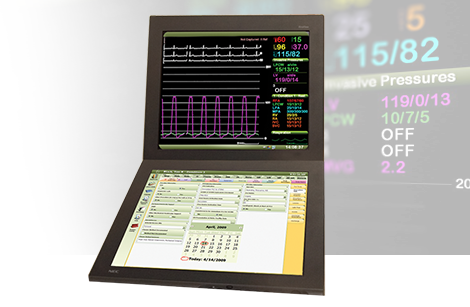A complex piece of medical equipment used to supervise heart catheterization procedures crashed during an actual procedure.
The cause of the crash was due to the antivirus software installed on the PC to which the device was connected to forcing the computer to restart to accommodate a program update.
Fortunately, the patient was sedated, and the doctors had a spare five minutes to wait for the computer to reboot, before restarting the equipment and carrying on with the procedure, without posing any risk to the patient.

Merge Hemo, the device in question in this story, is made up of two modules. The main component is the actual device — it is connected to catheters, and acquires data as the procedure takes place. This component is connected to the doctor’s computer or tablet by way of a serial port.
The other component is a software package that runs on the aforementioned computer or tablet. Its job is to record data and also display / log it on the screen in the form of simple-to-read charts.
Similar to most other software packages, Merge Hemo is subject to limitations, including the risk of crashing. When this happens, and doctors report the event, the program’s vendor must submit an Adverse Event Report with the FDA; this is how this particular incident came to light.
Upon investigating the issue, the vendor found that the problem occurred due to the way in which the antivirus software was installed on the doctor’s computer — it was configured to scan for viruses every hour. In this instance, the scan started immediately around the middle of the procedure.
Specifically, the program froze access to important data that was acquired during the heart catheterization; due to the fact that it could no longer access data in real-time, the app crashed.
The company concluded that it had included proper instructions within the device’s documentation — advising that companies whitelist Merge Hemo’s folders to prevent crashes from happening. So, it appears that the incident was simply an oversight on the medical unit’s side.
Via Softpedia
Advertisement
Learn more about Electronic Products Magazine





